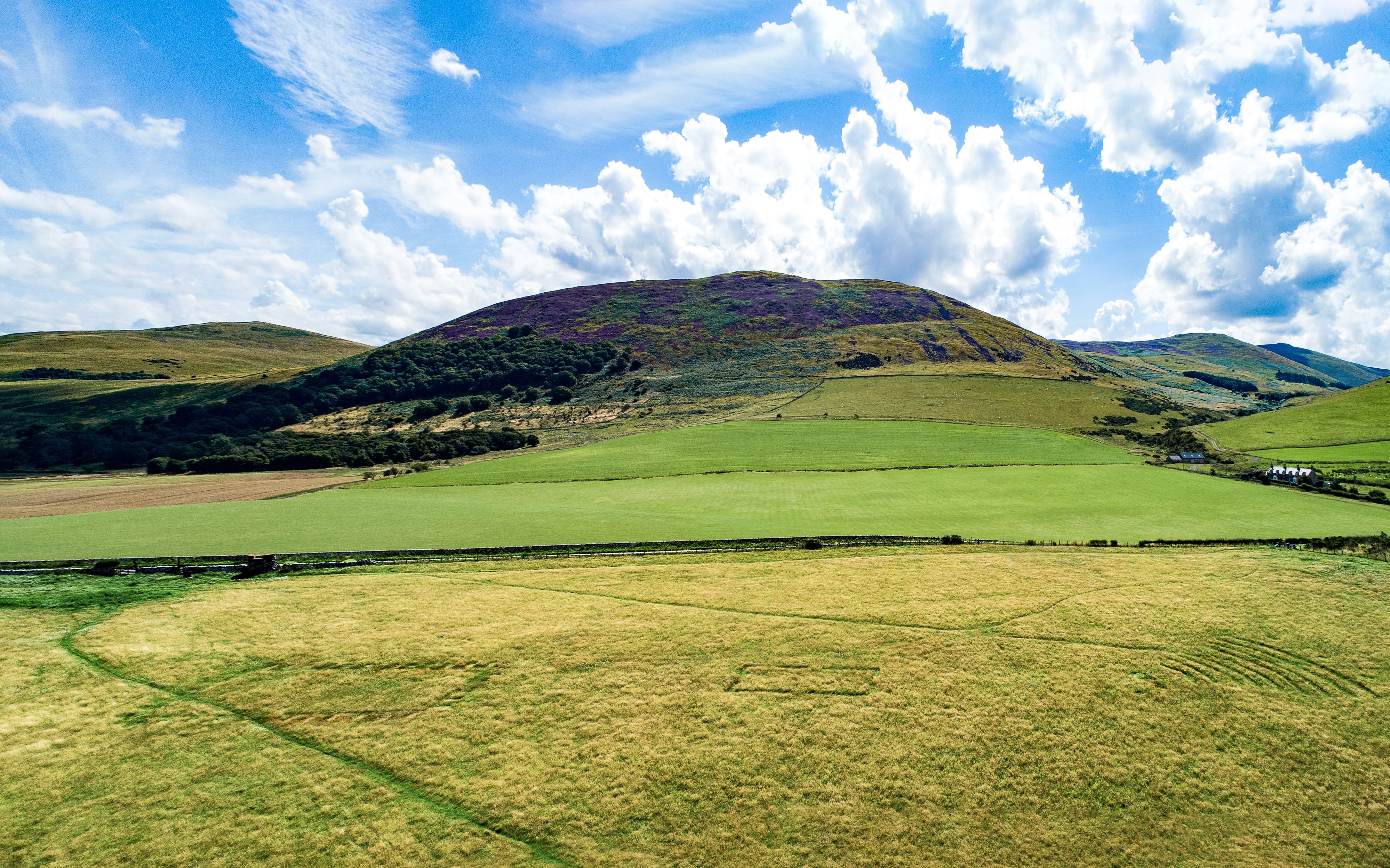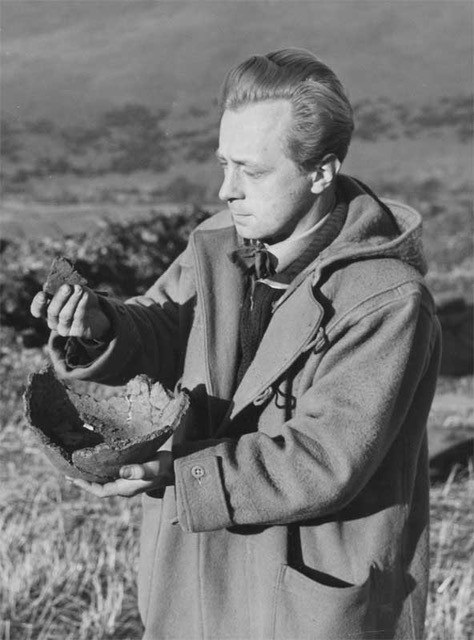
Durham University and The Gefrin Trust are embarking on a major new season of excavations at the royal palace of nearby Yeavering – the inspiration behind Ad Gefrin Anglo-Saxon Museum and Whisky Distillery and one of the most internationally significant early medieval archaeological sites in Europe.
The Gefrin Trust was formed in 2002 to ensure the preservation of the internationally renowned site of Ad Gefrin in Northumberland. The work of the Trust over the last two decades has focused on securing free, public access to this important site through sympathetic management, conservation and investigation. The Trust has also published an archaeological research framework to help direct research on the protected site and in the surrounding, wider landscape.
With an extensive programme of research-led investigation underway (including archaeological excavation) the team are turning their attention to developing other aspects of the their work with the local community, exploring the potential for volunteering and learning opportunities and developing a visitor destination with local partners.
.jpg)
From 28 August to 18 September 2025 another season of excavations will commence. Durham University’s Professor of Archaeology, Sarah Semple and her team will this year focus on the theatre or ‘Grandstand’, considered central to the site’s ceremonial and public life. The excavations will expand on archaeologist Brian Hope-Taylor’s findings, exploring, in addition, the inner ditch and terminals of the Great Enclosure. The excavations will continue to test the development of prehistoric to Saxon activity at Yeavering.
Sarah is an early medieval archaeologist in the Departmentof Archaeology at Durham University. She specialises in the landscapes and material culture of Britain and northern Europe, exploring how people’s interactions with their environments shaped identity, religion, and political power. She is the author of Perceptions of the Prehistoric in Anglo-Saxon England (OUP 2019) - and co-author of Negotiating the North (Routledge 2020).
For centuries, little was known about Ad Gefrin, its whereabouts hinted at by the Venerable Bede as the site of the first mass conversions to Christianity. The true location of King Edwin of Northumbria’s 7th-century royal palace remained a mystery until a 1949 aerial survey revealed extraordinary crop marks in a field north of Yeavering Bell. This discovery led to one of the most important archaeological investigations of the 20th century, led by Brian Hope-Taylor, revealing the palace as the setting for key events in early northern English history and a site central to understanding the history of religion in the British Isles.

Previous year’s excavations by the team have changed established narratives about Yeavering’s layout, chronology and development and lives lived at this early medieval royal complex. This season promises to go further—adding depth and detail to our understanding of one of the UK’s most important early medieval sites.
In partnership, Ad Gefrin, The Gefrin Trust and Durham University team will co-host a programme of orientation talks and on-site tours of the site of the Royal palace offering visitors the opportunity to experience the dig first-hand, including:
Expert-led guided tours of the excavation in progress
Fascinating talks revealing Yeavering’s role inNorthumbria’s history
Opportunities to meet the archaeologists and see discoveries as they happen
Orientation Tours
Ad Gefrin guides will offer engaging historical context and orientation at 3pm each day at Yeavering before introducing groups to the on-site dig team for a closer look at the archaeology in progress.
An optional donation of £5 applies, with all proceeds supporting future research and outreach. Guests are encouraged, if they wish, to visit the Ad Gefrin museum beforehand to gain a deeper understanding of the Yeavering site. The museum brings Northumberland’s Anglo-Saxon ‘Golden Age’ vividly to life, shaped by the extraordinary discoveries made at Yeavering.
Ad Gefrin’s immersive museum film experience recreates the Great Hall of the 7th century palace of Northumbrian kings and queens. Ad Gefrin is the only museum in the UK to focus on the royal Anglo-Saxon court and the daily life of its occupants and showcases numerous Anglo-Saxon archaeological treasures: some never-seen-before in the north-east. The collection includes items found at Yeavering, but also jewellery, ceramics and weaponry found across the north-east and other areas of England.

Durham University’s Professor in Archaeology Sarah Semple comments: “I am hugely excited that The Gefrin Trust and Durham University will be collaborating on a third season of excavation on the site of the ancient Saxon palace at Yeavering in Northumberland. We are eager to share our new results with visitors to the site. It is fantastic to be working with Ad Gefrin to offer on-site tours for the public.”
Ad Gefrin’s Museum & Experience Director , Chris Ferguson, adds: “It’s wonderful to be supporting further research on one of the most important archaeological sites in the history of the British Isles, and bringing this to the wider public. Our daily talks and excavation tours will bring visitors in contact with the latest finds and discoveries by the team from Durham University. Starting at the museum at Ad Gefrin, and taking people to ancient Yeavering connects the modern museum with the archaeological site directly, and will be an exciting journey for each and every visitor. As ever, we’re thrilled to work with our partners at Durham University and The Gefrin Trust”.
Header Image: Yeavering Archaeological Site And Yeavering Bell (SallyAnn Norman)